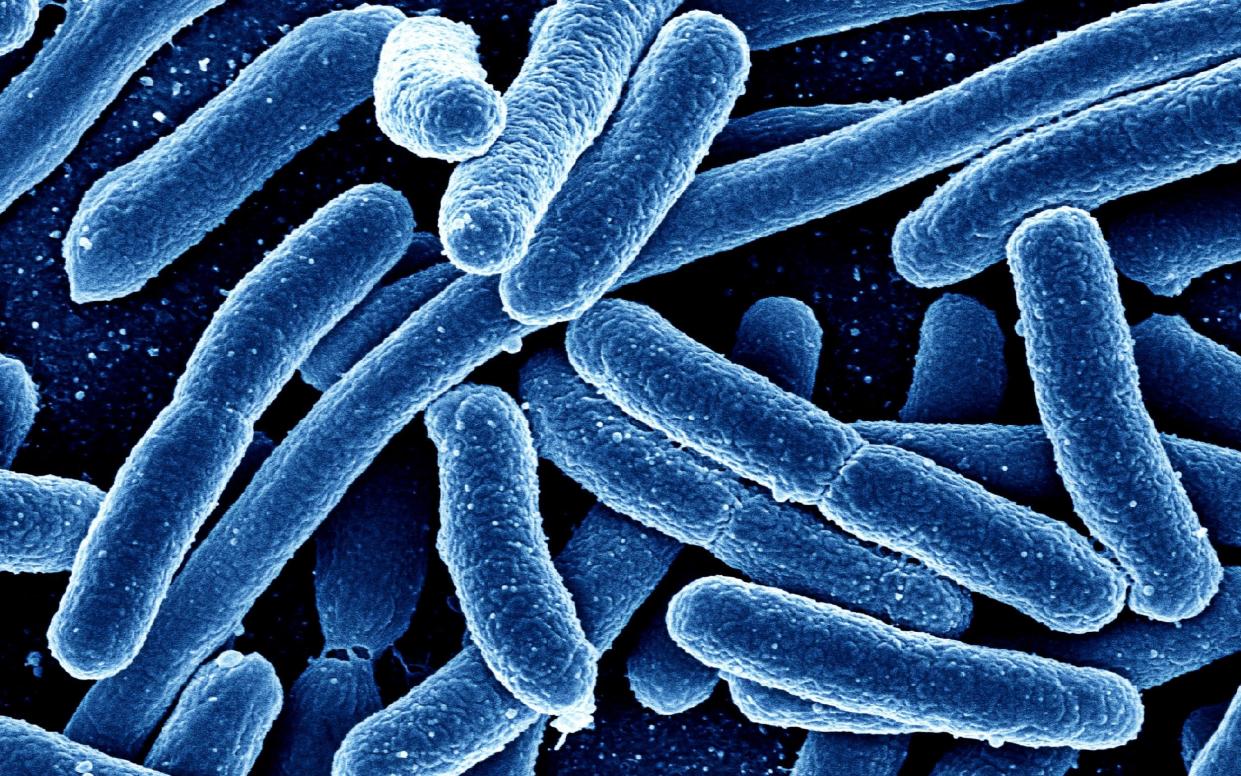First death linked to E.coli outbreak

A patient in England has died in a case linked to the ongoing E.coli outbreak, the UK Health Security Agency has said.
The patient, who suffered underlying health conditions, died in May, officials said on Thursday.
At least 275 people have been infected during the outbreak, which has been linked to lettuce contained in sandwiches, wraps, subs and rolls sold in major supermarkets and retail chains.
Several food manufacturers have recalled dozens of products from sale over fears that they could be linked.
Officials said they had identified two people who had died within a month of being infected with a strain called Stec O145, but only one of the deaths had been linked to the outbreak. Both had underlying health conditions.
Amy Douglas, the incident director at the UK Health Security Agency (UKHSA), said the agency expected the total number of infections to rise as more samples were referred for testing.

Darren Whitby, the head of incidents at the Food Standards Agency said: “Earlier this month, we confirmed that several sandwich manufacturers had taken precautionary action to withdraw and recall various sandwiches, wraps, subs and rolls after food chain and epidemiological links enabled us to narrow down a wide range of foods to a type of lettuce used in sandwich products as the likely cause of the outbreak.
“This remains a complex investigation, and we continue to work with the relevant businesses and local authorities to ensure necessary steps are being taken to protect consumers.
“Although we are confident in the likely source of the outbreak being linked to lettuce, work continues to confirm this and identify the root cause of the outbreak with the growers, suppliers and manufacturers so that actions can be taken to prevent a re-occurrence.”
E.coli is a diverse group of bacteria that are normally harmless and live in the intestines of humans and animals. However, some strains, such as Stec, produce toxins that can make people very ill.
People infected with Stec can suffer diarrhoea, and in about 50 per cent of cases experience bloody diarrhoea. Other symptoms, which can last up to two weeks in uncomplicated cases, include stomach cramps and fever.
Some patients, mainly children, may develop haemolytic uraemic syndrome, a serious life-threatening condition resulting in kidney failure. A small proportion of adults may develop a similar condition called thrombotic thrombocytopenic purpura (TTP).
Stec is often transmitted by eating contaminated food, but can also be spread by close contact with an infected person as well as direct contact with an infected animal or its environment.
People are advised to call NHS 111 or contact their GP surgery if they are worried about a baby under 12 months, a child that stops breast or bottle feeding while they are ill, a child under five that shows signs of dehydration, such as fewer wet nappies, or if an older child or adult still has signs of dehydration after using oral rehydration sachets.
Help should also be sought if people are being sick and cannot keep fluid down, experience bloody diarrhoea or bleeding from the bottom, or if they have diarrhoea lasting more than seven days or vomiting for more than two days.
Data from 249 of the UK cases show that 49 per cent of infected patients were admitted to hospital. A further 19 cases were reported in the week ending June 25. All currently confirmed cases had symptoms before June 4, officials said.
Ms Douglas, from the UKHSA, said: “Symptoms of infections with Stec include severe and sometimes bloody diarrhoea, stomach cramps, vomiting and fever. While diarrhoea and vomiting can have a range of causes, there are simple steps you can take to reduce your risk and the risk of infecting others.
“Washing your hands with soap and warm water and using disinfectants to clean surfaces will help stop any further spread of infection. If you are unwell, you should not prepare food for others while unwell and avoid visiting people in hospitals or care homes to avoid passing on the infection in these settings.
“Do not return to work, school or nursery until 48 hours after your symptoms have stopped. If you are concerned about your symptoms, follow nhs.uk guidance on when to seek help and the steps you can take to avoid further spread to family and friends.”


